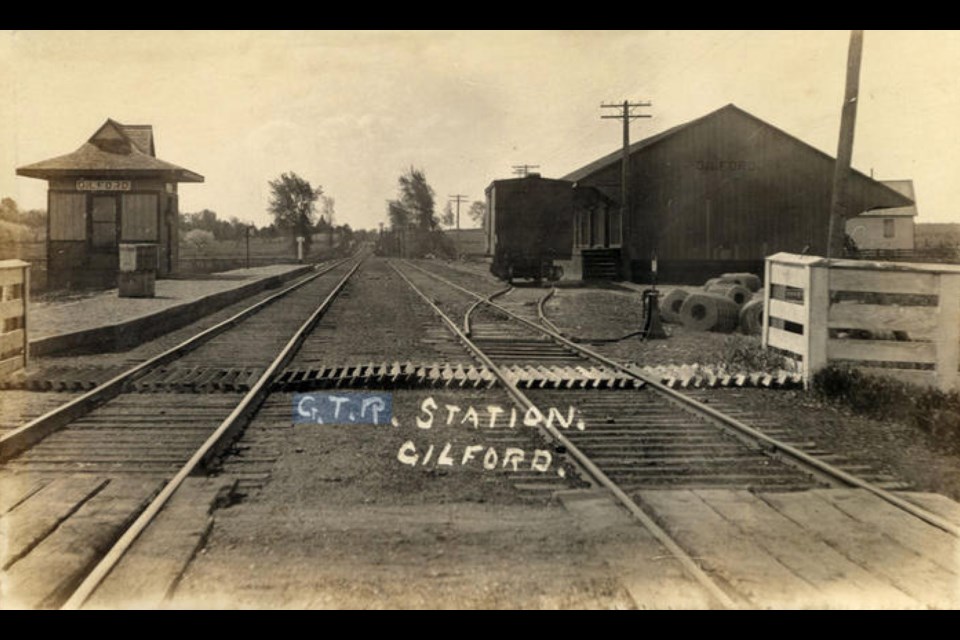The railway played a prominent role in 19th-century Gilford. So, too, did stationmaster Joseph F. Smith, at least for a time.
Born in Lincolnshire, England, on May 31, 1841, Smith was one of eight children. With the death of his father in 1854, the burden of caring for the family fell to Joseph, the oldest son at 13. During the day, he worked on the family farm, but by diligently attending night classes, he managed to secure an education.
In 1859, Smith enlisted in the army and was posted to the 30th Regiment of Foot. When the United States Civil War erupted in 1861, Britain sent reinforcements to Canada to protect the colony. Members of the 30th Regiment were among the troops sent.
Smith was an excellent soldier, a natural leader. After less than three years, he was promoted to the rank of sergeant. Beyond rapid promotion, his time in Canada also brought him a wife: He married Jane Coffin in 1864.
Despite British fears and a few periods of heightened tension, the Civil War remained confined to the United States.
The subsequent peace was anything but peaceful, however. In 1866, American Irish revolutionaries known as Fenians raided across the border in the hope of holding Canada hostage until Britain accepted independence for their homeland. Cpl. Smith saw campaigning throughout the year, including the decisive battle that turned the insurgents back.
Upon leaving military service later that year, Smith found employment with the Northern Railway, serving as stationmaster for Sunnidale (now part of Barrie). Disaster struck the community in August 1867, when a raging bush fire quickly consumed the entire village, destroying everything in its path. The conflagration left Smith, and many others, nearly destitute.
It could have been far worse. Smith was at the train station when the fire struck and he managed to reach safety without undue effort. Jane and their two young children, however, were home alone and nearly trapped by the flames. They “barely escaped with their lives from the fiery fiend,” according to a contemporary newspaper.
In the fire’s aftermath, Smith was re-posted to the hamlet of Gilford. The Gilford train station, built in 1853, was located on the eastern side of the tracks, just south of Gilford Road, almost opposite the still-standing former general store. Smith managed the small station and its extensive livestock siding. A prominent citizen, he held “the entire confidence and respect of his employers and the public.” He apparently loved to regale people with his colourful military adventures.
In 1872, Smith left Gilford. Promoted by the railway, he took on the Aurora station, where he resumed his military career in the militia 12th Battalion York Rangers. By 1879, he had reached the rank of captain and assumed command of 3rd (King) Company. He later volunteered for service in the Northwest Rebellion (or Resistance) of 1885, campaigning against Louis Riel and the Métis and First Nations.
Smith was later transferred to Barrie, where he retired in 1909 and died two years later, his adventurous life at an end.



